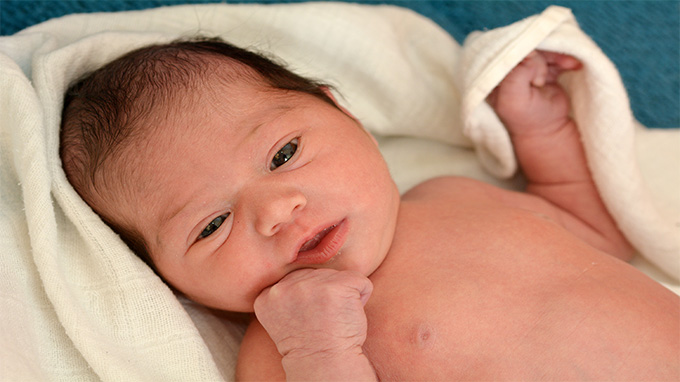Hyperlipidemia causes acute pancreatitis
Hypertriglyceridemia (excess blood triglyceride concentration) is one of the three common causes of acute pancreatitis (the remaining two are biliary diseases and alcohol).
On the third day of the first month of the first month, the ICU of our hospital continuously treated two patients with acute pancreatitis caused by hyperlipidemia, one of them was a 15-year-old type 1 diabetic female patient, and the other was a middle-aged man over 40 years old. . The former checked the blood lipid 49 mmol/L (normal limit is 1.70 mmol/L) after admission, and the fat repeatedly replaced by plasma was in the barrel. The latter is already high in blood fat. After playing mahjong for a day, he ate hungry for a whole day, and he quickly attacked after drinking 2 pounds of milk.
The normal range of blood triglyceride (TG) concentration is <1.7mmol/L (150mg/dl). TG from 1.70 to 2.25mmol/L is the "marginal increase" of blood lipids; TG ≥ 2.26mmol/L (200mg/dl, sometimes also approximately 2.3mmol/L) is "hypertriglyceridemia".
Guidelines for the Prevention and Treatment of Dyslipidemia in Chinese Adults 2007 pointed out that the risk of coronary heart disease increased in patients with mild to moderately elevated serum triglyceride (TG) levels; when TG is severely increased, it is often possible With acute pancreatitis. It is generally believed that when TG>5.65mmol/L (500mg/dl), the serum is chylous, which may cause acute pancreatitis; when TG>11.3mmol/L (1000mg/dl), the possibility of causing acute pancreatitis great.
The mechanism by which hyperlipidemia causes acute pancreatitis is very complicated. Once pancreatitis occurs, serum triglyceride (TG) levels will further increase significantly, and aggravate the condition of pancreatitis. Therefore, elevated triglycerides are both the cause of pancreatitis and an important manifestation after the onset of pancreatitis. This complicated relationship sometimes causes difficulties in the diagnosis of the cause.
Take the aforementioned 15-year-old female patient as an example. After admission, the TG was 49mmol/L (4336mg/dl). This amazing value is not necessarily her lipid level. Her level of lipids is unknown, but she has a history of diabetes (easy). It is estimated that she may have high blood lipids. In addition, after the onset of pancreatitis, the TG level is extremely high, far exceeding 11.3mmol/L (1000mg/dl). Blood lipids cause acute pancreatitis.
Acute pancreatitis caused by hyperlipidemia is not only related to the level of normal blood lipids, but also may be related to a large amount of fat intake in a short time, such as eating a lot of greasy foods, fried foods, or like the above Like the second patient, drink 1 liter of milk (more than 30 grams of fat) in one go. Hyperlipidemia implies obstacles to blood fat transport and metabolism. On this basis, dietary intake of fat in large amounts at once increases the risk of acute pancreatitis. In addition, there are studies saying that when hyperlipidemia occurs with fatty liver, the risk of acute pancreatitis is significantly increased.
Therefore, those with hypertriglyceridemia should take a low-fat diet, strengthen exercise, and lose weight. These measures are not effective, or when the TG level is very high (> 5.65mmol/L), it is necessary to actively take lipid-lowering drugs. At the same time, special attention should be paid to avoid ingesting more fat at one time to prevent acute pancreatitis.
In addition to acute pancreatitis, spontaneous abdominal pain can occur when serum triglyceride (TG) levels are high.
Acute pancreatitis caused by hyperlipidemia is usually more serious and critical and requires ICU treatment. Blood purification treatment (the repeated use of plasma in our hospital) can quickly reduce blood lipids and relieve the disease.
Related Articles

- What are the symptoms of Crohn's disease?
- 2020-12-17

- Teach you a few tricks to deal with your child's jaundice
- In the clinic, we found that half of the newborn babies will become yellow (60% full term infants, 80% premature infants). Such children are usually diagnosed as neonatal jaundice. The reas
- 2020-08-02

- Why Chinese mothers breastfeeding rate is not high
- Today, the proportion of Chinese mothers who breastfeed exclusively is not high. Information shows that the proportion of Chinese mothers who are "breastfeeding" is 52.4%; followed
- 2020-08-02

- Breastfeeding children are more adaptable to the outside world
- Breastfeeding has many benefits. The latest research shows that breastfeeding children are more adaptable to the outside world. Studies have shown that breastfeeding children aged 0 to 1 y
- 2020-08-02

- Breastfeeding is good for mothers
- Everyone knows the benefits of breastfeeding, and has repeatedly emphasized that 4-6 months of exclusive breastfeeding is enough. However, according to surveys, breastfeeding rates in China
- 2020-08-02

- Baby grow up, how to add food supplement
- Xiaobao is 7 months old. The baby''s grandma said that it is time to add supplementary food to the baby. This morning, Grandma carefully steamed the eggs for her grandson. She told
- 2020-08-01
